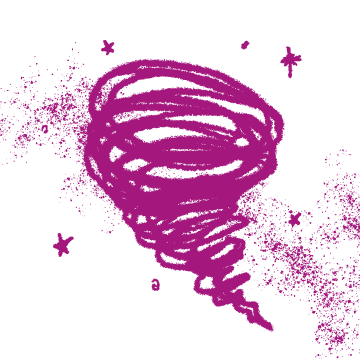
Recognize an overdose, overuse or a bad trip
Since there is a wide variety of substances in this category, thus multiple effects and tips that comes with each, the following advice is global. It's also important to note that each person can react differently and that each substance has their own characteristics.

*Here are some of them: LSD, Ketamine, Cannabis, psilocybin (magic mushrooms), DMT, salvia, nitrous oxyde (laughing gas)…
Paranoïa, distessing hallucinations, munching, dissociation, impression of losing touch with reality, psychosis, agitation, anxiety, sensory overload (visually; with closed or open eyes, auditory and tactile) altered time-space perception, paralysis, catatonia, convulsions, heart rhythm disturbances, inability to urinate or urgent and repetitive urges), intestinal disorders, appetite, irregular body temperature, excessive sweating, difficulty in coordinating movements, loss of balance, slurred speech, respiratory distress, etc...
*Stay on the lookout for these symptoms, for you and others. A glass, a joint, a parachute or a line/bump can be spiked so quickly, voluntarily or not.
Act in case of an overdose
Being under the influence of some of these substances can result in a fatal overdose, induced by a loss of the usual primary functions of the body including breathing, the heart and digestive motricity (cardiorespiratory arrest or risk of suffocation in vomiting) combined or not with intense dissociation and loss of counscisouness.
If you witness someone lying down and not moving after using, check if they are conscious, their pulse and breathing, and if you see signs of head trauma from a possible fall. If they're breathing but struggles to remain conscious/no longer conscious, consider the Recovery Position as soon as possible. If they're unconscious and you can't take them away, ask people to make a 'human safety wall' around them. Monitor their breathing, pulse and temperature. If the situation does not improve or worsens, and you see any worrying symptoms such as seizures, hyperthermia, heart rhythm disturbances, excessive sweating, difficulty breathing, and you have access to a phone/cellular network, it's best to ask someone to call 911, but you can do it yourself. Otherwise, ask someone to go and warn a passerby, or security personnel if you are in an event.
